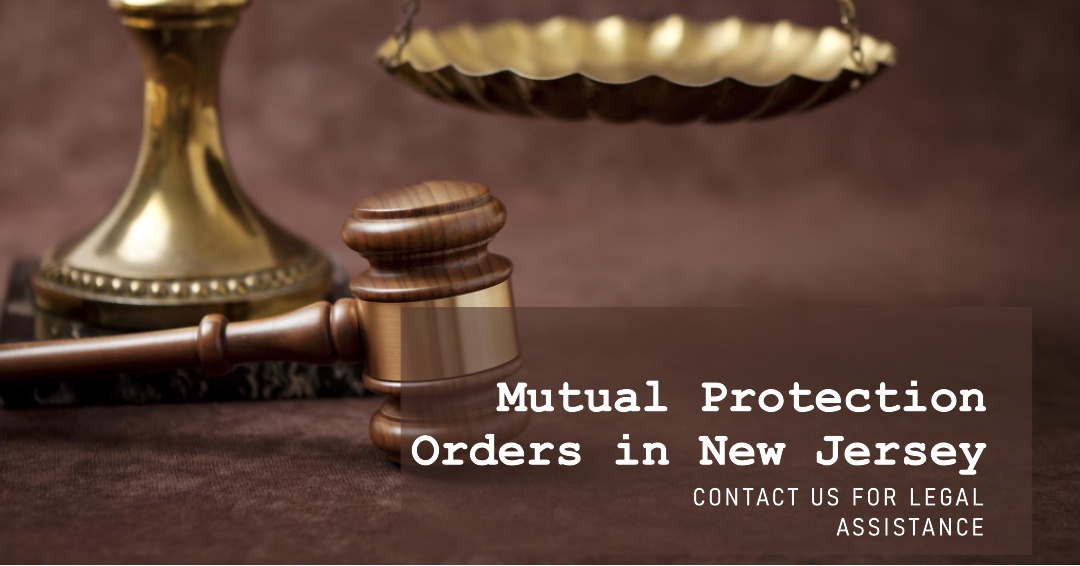Navigating legal matters can be daunting, especially when it involves issues as sensitive as protection orders. In New Jersey, mutual protection orders play a crucial role in safeguarding individuals from domestic violence or harassment situations involving two parties. Understanding how these orders work is essential for both victims seeking protection and individuals accused of wrongdoing. In this comprehensive guide, we'll delve into the intricacies of Mutual Protection Orders in New Jersey, shedding light on what they entail, how they're obtained, and what rights and responsibilities they entail for all parties involved.
What Are Mutual Protection Orders?
Mutual protection orders, also known as mutual restraining orders, are legal directives issued by a court to prevent contact between two parties who have alleged incidents of domestic violence or harassment against each other. Unlike traditional protection orders where only one party seeks protection from another, mutual protection orders involve both parties seeking protection from each other simultaneously. These orders are designed to ensure the safety and well-being of all involved while preventing further escalation of conflicts.
How Are Mutual Protection Orders Obtained?
Obtaining a mutual protection order in New Jersey typically involves several steps:
- Filing a Complaint: Either party can file a complaint with the court alleging domestic violence or harassment. The complaint outlines the incidents, providing details necessary for the court to assess the situation.
- Temporary Restraining Order (TRO): Upon receiving the complaint, the court may issue a temporary restraining order (TRO) if it deems the allegations credible and believes there's a risk of harm to either party. TROs are temporary measures meant to provide immediate protection while the court reviews the case.
- Hearing: Within a short period, usually 10 days, a hearing is scheduled where both parties present their cases before a judge. This hearing allows the court to evaluate the evidence and determine whether a final protection order is warranted.
- Final Protection Order: Following the hearing, the court may issue a final protection order if it finds sufficient evidence to support the allegations. This order outlines specific terms and conditions regarding contact between the parties, which may include maintaining a certain distance, refraining from communication, or attending counseling programs.
Rights and Responsibilities Under Mutual Protection Orders:
Mutual protection orders come with rights and responsibilities for both parties involved:
- Compliance: Both parties are legally obligated to comply with the terms of the protection order. This includes refraining from any contact or communication with the other party as specified in the order.
- Exceptions: While mutual protection orders typically prohibit contact between parties, there may be exceptions for certain circumstances, such as court-approved communication regarding child custody arrangements or legal proceedings.
- Modifications: In some cases, either party may seek modifications to the protection order, such as altering visitation arrangements or adjusting contact restrictions. However, any modifications must be approved by the court.
- Consequences of Violation: Violating a mutual protection order can result in serious consequences, including fines, imprisonment, or additional legal penalties. It's crucial for both parties to understand and adhere to the terms outlined in the order to avoid such consequences.
Challenging Mutual Protection Orders:
If either party believes that a mutual protection order was issued unjustly or based on false allegations, they have the right to challenge the order through legal means. This may involve presenting evidence to dispute the allegations or demonstrating that the order is unnecessary or overly restrictive given the circumstances.
Seeking Support and Resources:
Navigating the complexities of mutual protection orders can be overwhelming, but individuals involved in such situations don't have to face them alone. There are numerous resources available in New Jersey to provide support and assistance, including:
- Domestic Violence Hotlines: Organizations such as the New Jersey Coalition to End Domestic Violence offer 24/7 hotlines staffed by trained professionals who can provide support, information, and referrals to relevant services.
- Legal Aid Services: Low-income individuals may qualify for free or low-cost legal aid services to help them navigate the legal process of obtaining or challenging mutual protection orders.
- Counseling and Support Groups: Mental health professionals and support groups specializing in domestic violence can offer emotional support, counseling, and resources to help individuals cope with the challenges they face.
Mutual protection orders play a vital role in addressing New Jersey Domestic Violence and harassment situations involving two parties in New Jersey. By understanding the process of obtaining these orders, as well as the rights and responsibilities they entail, individuals can better protect themselves and ensure their safety and well-being. Additionally, seeking support from available resources can provide invaluable assistance to those navigating such challenging circumstances. Ultimately, by working within the legal framework and accessing the support networks available, individuals can take proactive steps towards resolving conflicts and promoting safety in their lives.


No comments yet